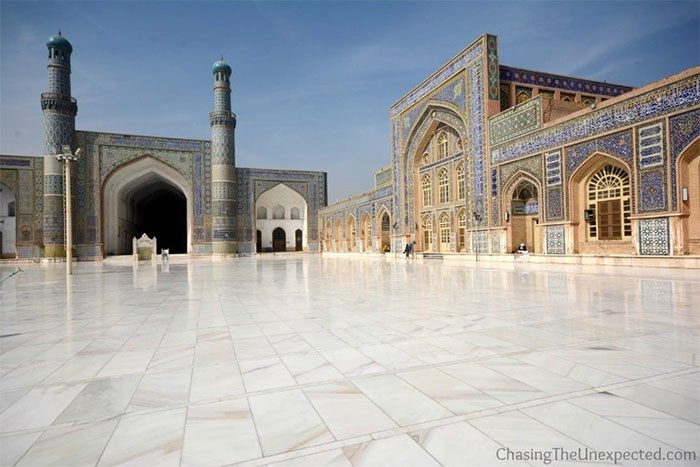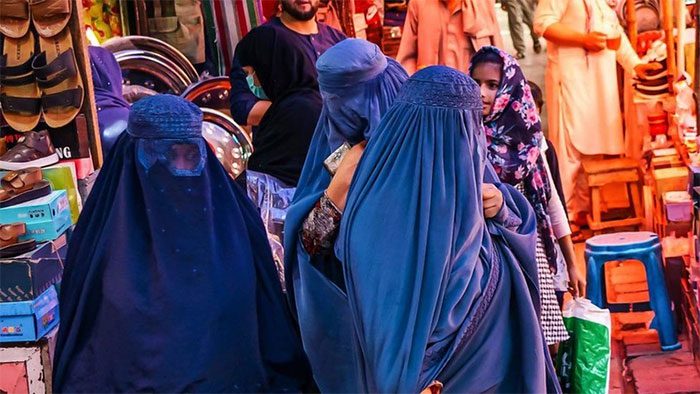According to AFP news agency, Afghanistan, despite having many strict regulations and laws, still allows men and women the right to dine in restaurants. This is particularly true in Herat, a city considered relatively free in the country.
Strange Bans Imposed by the Taliban Government
However, since regaining power in August 2021, the Taliban has imposed a series of bizarre laws to “align with their religious vision.”
In early May, the Taliban issued a decree requiring women to wear full-body coverings in public places, with penalties for non-compliance. Most recently, officials in Herat mandated that “men and women must maintain distance in restaurants.”

Before the Taliban took power, Herat was a relatively free city in the country. (Photo: Travel).
Mr. Riazullah Seerat, an official from the Ministry of Promotion of Virtue and Prevention of Vice, stated that this regulation also applies to couples.
An Afghan woman, who requested anonymity, shared that when she and her husband went to a restaurant in Herat, the manager reminded them to sit apart.
Meanwhile, a restaurant manager named Safiullah expressed that he must comply with the regulation, but it “negatively impacts business.” “If the ban continues, I may have to lay off my staff,” he said.

Afghan women on the street. (Photo: BBC).
Additionally, Mr. Seerat mentioned that Herat officials have also issued a decree requiring public parks to be gender-segregated. Men and women will visit parks on different days.
“Women will go to the park on Thursdays, Fridays, and Saturdays. The remaining days of the week are for men.” According to Mr. Seerat, if women want to exercise, they can “work out at home or choose a safe location.”
Currently, women in Afghanistan are prohibited from traveling alone. They are banned from flying without a male escort and must always cover their faces when in public.
Herat is the third-largest city in Afghanistan, located in the Hari River valley, which flows from the central mountains of Afghanistan to the Karakum Desert in Turkmenistan. Before the Taliban took power, it was considered a relatively free city due to fewer restrictions.





















































